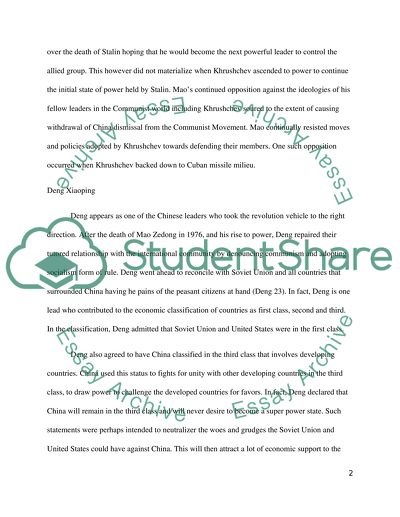International Relations for Mao Zedong and Deng Xiaoping Essay. Retrieved from https://studentshare.org/miscellaneous/1610113-international-relations-for-mao-zedong-and-deng-xiaoping
International Relations for Mao Zedong and Deng Xiaoping Essay. https://studentshare.org/miscellaneous/1610113-international-relations-for-mao-zedong-and-deng-xiaoping.


